Cringe, (In)congruence, and Kazakhstan
In the middle of figuring out how to do a project that's going to require some web scraping, so I figured I'd do a slow-pitch movie post. Plus, I'm trying to remember how the hell to use GitHub so I can share what I put together. Bear with me.
I was recently listening to an episode of my favorite podcast, Harmontown*, and they got off on an interesting tangent about humor theory. Essentially, and I'm sure I'm butchering this, the conversation boiled down into two main ideas:
- Incongrous Juxtaposition Theory (IJT): Ridiculousness. The idea that humor is derived from the inconsistency between the expectation or norm and the reality of the situation. E.g.:
- Dr. Steven Brule, ya dingus
- The meta-take on this kind of humor that is the anti-joke.
- This thing

- Benign Violation Theory (BVT): This one's a little more complicated. It leans heavily on the Bintersection of something threatening "how the world ought to be" and the knowledge that you're insulated from any harm of the departure.
Mouthful, right? But consider the idea of slapstick humor-- in a perfect world, people shouldn't be getting hit by cars. Nevertheless, movies stage an incident and we watch safely from our living rooms and we arrive at this.

Also, this broad definition gives us vocabulary to inspect the idea of cringe humor, or being able to laugh uncomfortably at the crawling sensation you get when you watch something like S6E12 of The Office: Scott's Tots. Your mileage may vary, but The Office remains one of my very favorite shows precisely because I can enjoy it from the emotional bunker I build by watching through the slits of my fingers. It's a real catharsis, watching the social clumsiness of Michael Scott, likely in large part because it provides an escape from my own.
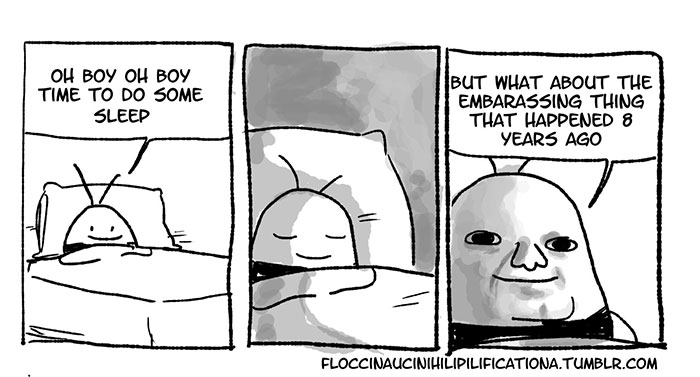
But this is hardly a new idea. Seinfeld one of the most celebrated comedies of all time because it danced nimbly between the Incongrous Juxtaposition humor where we construct ridiculous situations, realized by ridiculous characters...

...and then revel in the social fallout, the Benign Violation

And so I spent some time this week rewatching the 2006 film Borat. I've been a long-time fan of the creator's other work and source material for this movie, Da Ali G Show, which is essentially a character reel of cultural exaggerations thrust upon ostensibly normal people and capturing their reactions. On the off chance you're out of the loop on this one, Borat follows its titular character from a third-world parody of Kazakhstan and his journey to "U, S, and A" in order to return with "Cultural Learnings of America for Make Benefit Glorious Nation of Kazakhstan." If you printed a timeline of the film and tossed a dart, you wouldn't have to travel very far at all to find something problematic-- I'm certain that you could lose days reading op ed pieces about people watching the movie thinking it was an endorsement, not a parody.
Ultimately, while we safely watch on, strangers are confronted with a strange man blathering on in a fictitious accent about things that are incongruent with their lifestyle. And fuel by whatever social dynamic that governs thought and perception, they just buy it wholesale. Relevant clip from The Office:
Near the beginning of the movie, he goes to a used car lot looking to buy a "pussy magnet" that will "attract woman with shave down below," and the salesman barrels right through these comments and tries to upsell him a Hummer. Doubling-down on the "ridiculousness" element of IJT, Borat asks for the man's recommendation about requisite travel speed for drive and kill a group of gypsies. Matching Borat's strange, exaggerated energy, the man takes pause then begins to speak with authority on such matters of velocity and manslaughter. The internal "Dude....." monologue you have as the salesman stays engaged in the conversation, trying to establish report in high salesperson fashion is precisely the draw of the movie, the BVT. Finally, Borat pulls out all the stops, talking about his disappointing experience with his wife, casually mentioning that he purchased her, that she was strong on the plow, and peppering phrases such as "after 3 years when she was 15" and the stranger is completely unphased. When asked something to the tune of "How do I ensure I don't get ripped off like this again?" he fires back with:

Unreal.
I should also note that I can really take or leave the connective thread that ties these desperate interactions together. This blog isn't an endorsement to all of the in-character/in-isolation bits of dialogue between the protagonists, and all of the naked wrestling and in-character Jew-bashing therein (Cohen was raised Jewish, lol). What I love about this movie, and what I was excited to reengage with, was the broad spectrum of humanity that the character Borat brings out of people
From anger...
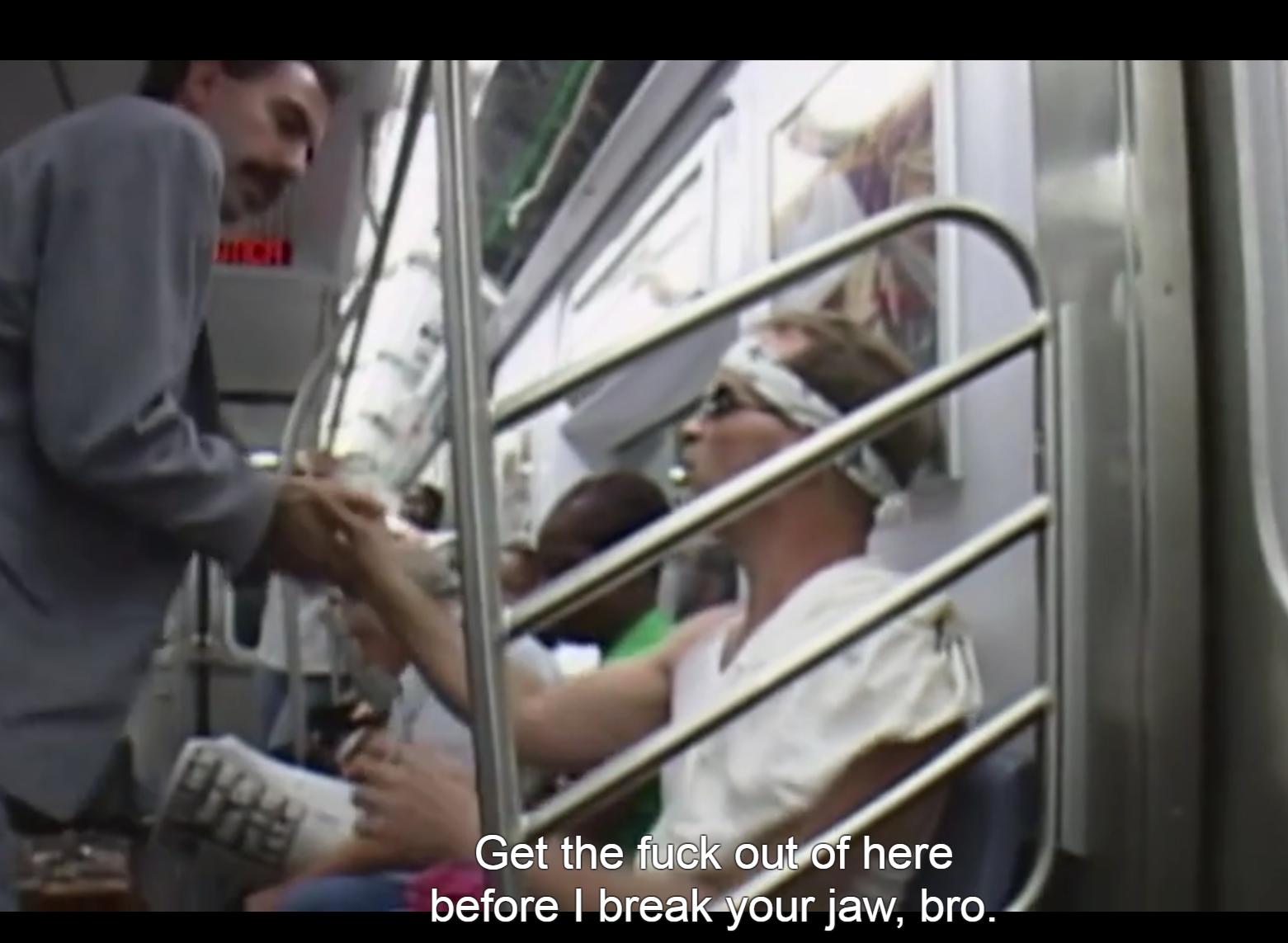
...to amused incredulity...
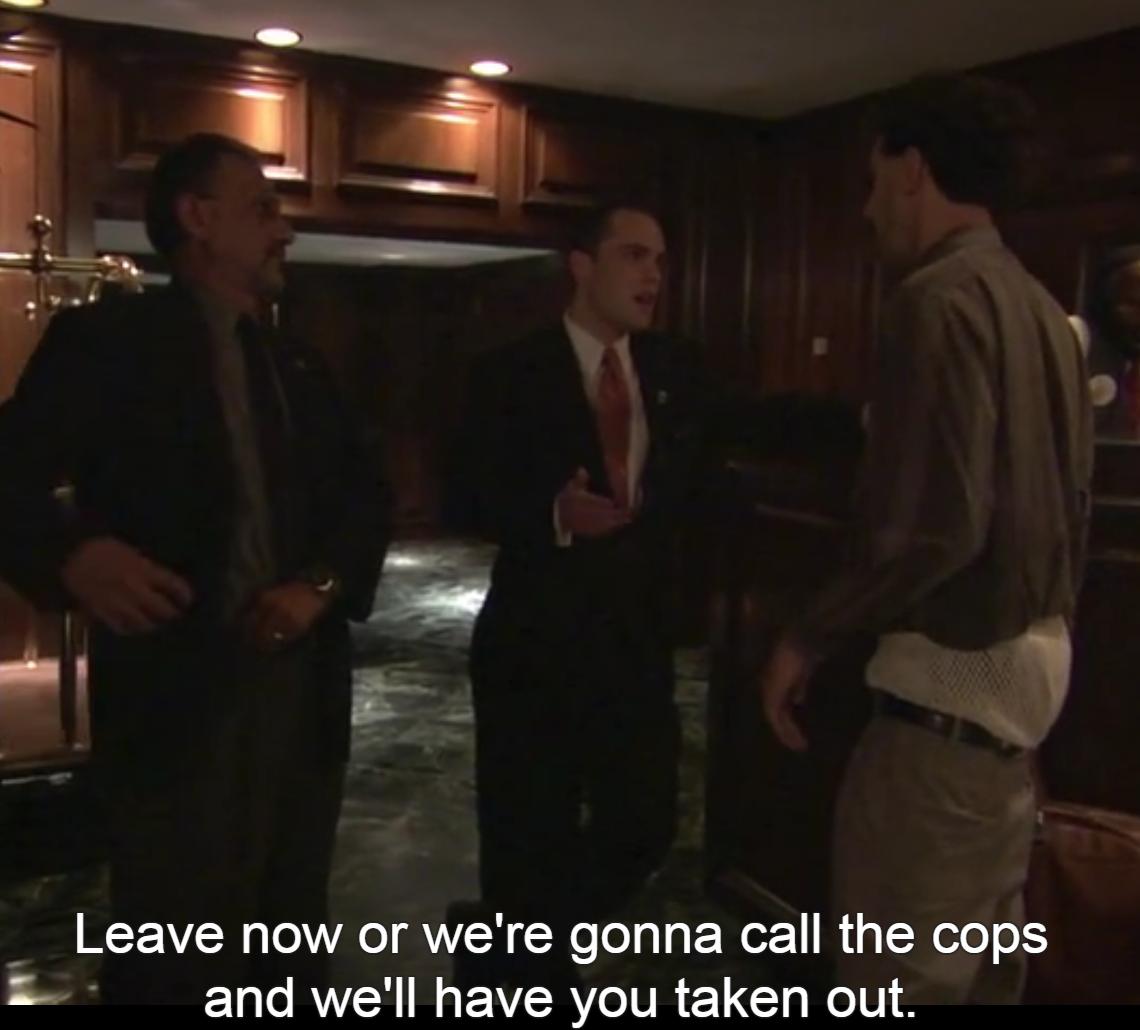

...to a sort of optimistic cultural relevism.
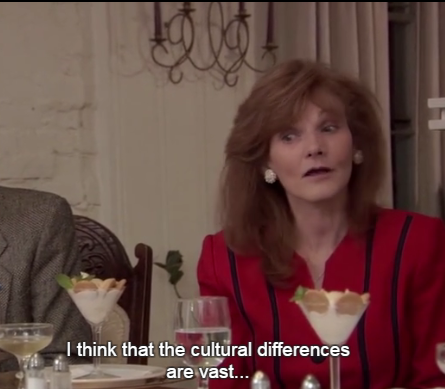
While he is away using the bathroom, she continues to say in his absence that Borat is a delightful man, and that it wouldn't take very much time for him to become Americanized. Until, of course, he returns with a bag of feces and her optimism fades.
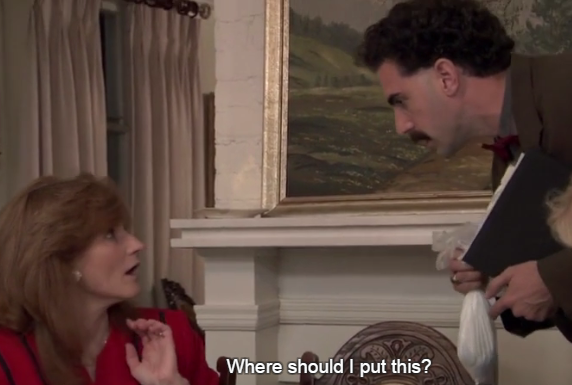
Interestingly, near the end of the movie, Cohen uses this same clash of the "weird and incongruent" shtick in his visit to a southern Pentacostal Church. Though, he reverses roles and is seen playing the comedic straight man. He spends a substantial portion of the movie carting around in a dilapidated ice cream truck, brown bear poking out of the window, then ironically spends the scene perplexed by the people around him running, speaking in tongues, and doing some all-around Jesus Camp stuff
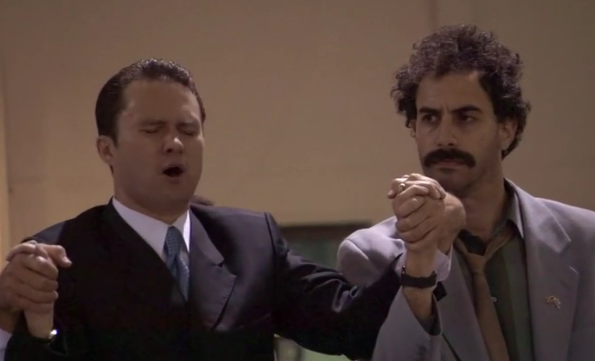
But all told, Cohen is astoundingly good at staying in character and is a master at juggling this social "Incongruous Juxtaposition" with expert comedic timing to provide us with a number of delightfully uncomfortable exchanges. To me, this goes down as an absolute cultural classic, if solely for helping me finally understand how to tell a NOT joke in classic BVT fashion.
Next, next Thursday marks the 10 year anniversary of this film. I almost lament that it wound up being so popular. However, it's not like Cohen could keep this gag going forever. There's definitely an inverse relationship between the authenticity of the reactions he gets and the popularity of the character. But regardless of what caricature he is portraying, it'd be interesting to see him revisit this bit and others like it in today's social climate.
In the meantime, I'm more than happy to take what I can get.
This post was probably equal parts Movie and Musing. Hope you enjoyed reading. If you did, you might want to check out this fantastic Salon article I stumbled across that aggregates character accounts of the strangers that appear in the movie. And of course, if you didn't, feedback form is to the right! Aiming for my next post to be more data-centric-- should be out in the next couple weeks. With that, I leave you with the funniest, stupidest damn joke I think I've ever heard-- a real exercise in IJT.
Cheers,
-Nick
* Editor's** Note: It may very well have been something else that I heard this. I just listen to a lot of Harmontown.
** I don't have an editor